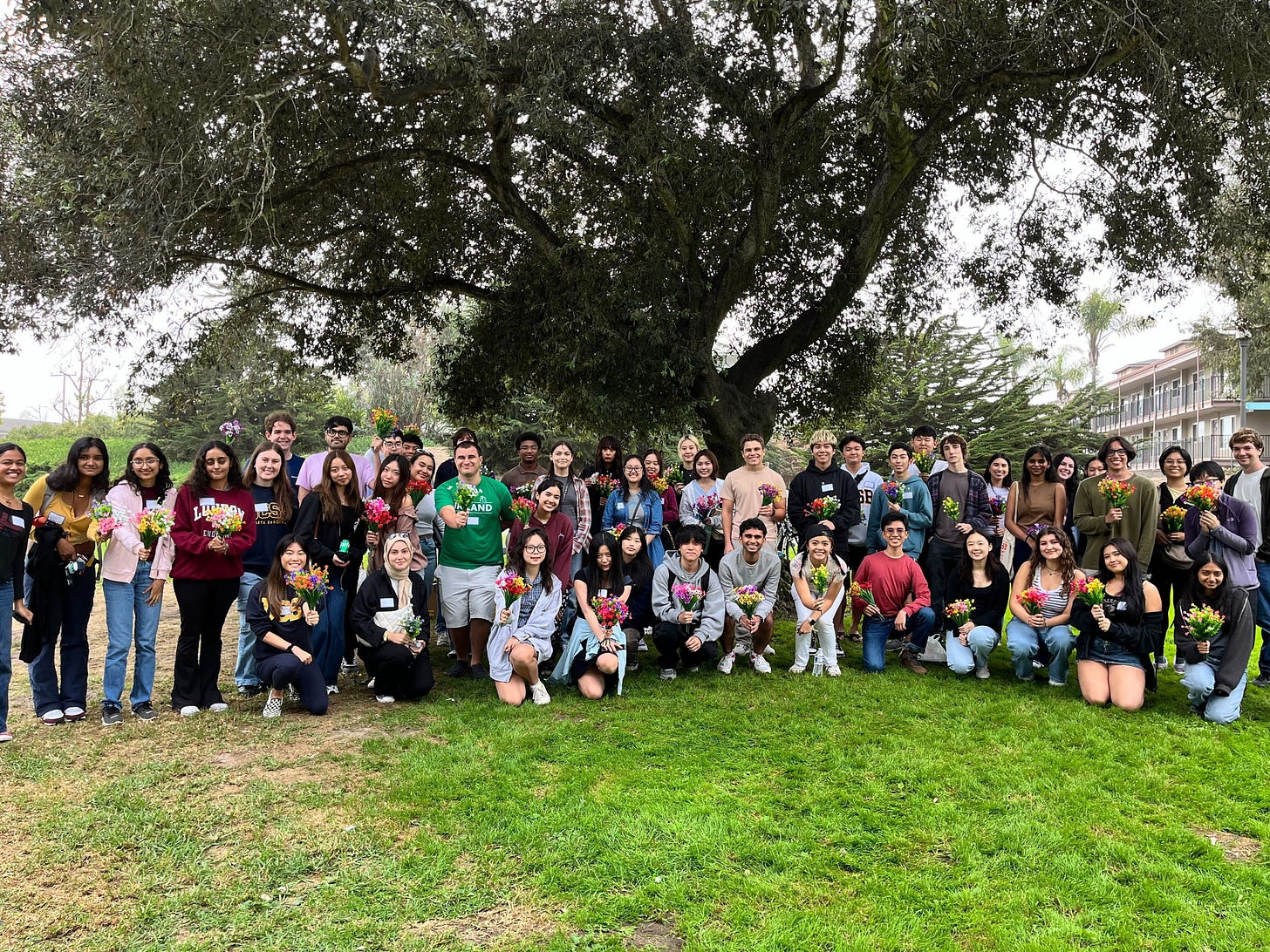Welcome back to Jeremi and Luca’s Newsletter, a weekly update from two friends connected by a relentless desire to learn.
Enjoy a closer look at what we’re reading, working on, and thinking about—from the small learnings to the large perspective shifts.
Jeremi: Mentors
Every week, as a part of the technical development team on the Data Science Club, I mentor students on their technical projects.
It’s an interesting experience. For most of my week, I am the mentee. I go to class to learn from professors. A lot of the professional interactions I initiate with people are when I am looking for their insight, their wisdom.
What’s interesting to me is how easy it is to flip this switch and think of myself as the “mentor.”
Sure, I might have some technical experience. But a lot of the questions I’m asked can be pretty broad. How do you approach a project at all? What factors lead to success? I’m perfectly fine giving my perspective on these questions. But in my head, I’m thinking: you know the answers to these questions just as well as I do.
I think all of these people who consider me a mentor could actually easily switch positions with me, and give the same advice that I’m giving. I’m not telling them anything they don’t already know. Still, I understand how it’s reassuring to hear those things come from some place of authority.
It’s often why I’ll ask my own mentors questions that I could truthfully answer myself. It’s not enough that I could answer the question myself—I want the comfort of knowing it’s the correct answer.
Don’t get me wrong—I think that other people can give a really valuable perspective, and might have information and experience that I don’t. I spoke with a professor from Japan because he has years of experience in Robotics, and I had specific technical questions about the field that he really helped shed light on.
But other times, I find myself asking general questions just for the sake of getting an answer, even when I know that I can reason to the answer myself. In these moments, I’ve been trying to flip my “mentor” switch on and come up with those answers myself.
A recent example was when I was peppering a friend with questions on how I should present myself to the Computer Science department to petition for a graduate-level class. At a certain point, I had to step back and remind myself: I know how to do this!
Even if it felt comforting to have someone else tell me how to write an email, it was a disservice to myself to not trust in my own skills and opinions.
There’s certainly an extreme to this, which I am not promoting. But on balance, I’m trying to follow my own advice more.
Luca: Y Combinator
Super brief startup recap:
Apr 2024: Prototyped an AI flight simulator at an aerospace hackathon
Summer 2024: Saw traction with our idea; conducted market research, attended FlightSimExpo in Las Vegas and EAA AirVenture in Oshkosh
Fall 2024: More user interviews; pivoted to serving industrial domains beyond just aviation with an AI mixed reality engine (designed to be built on for custom, AI-understandable 3D reconstructions)
(greater depth can be found in our third newsletter issue)
Recap of November:
Nov 12: Applied to Y Combinator (YC), a startup accelerator and VC that funded companies like Airbnb, DoorDash, Reddit, and Dropbox
Nov 14: Invited to interview on Nov 18 (top 5-7% of applications)
Nov 15-17: Mock interviews, other prep
Nov 18: Fast-paced 10-minute interview with two YC partners
We learned that night we weren’t selected, and the decision hit me hard. I really wanted this… but likely for the “wrong” reasons.
Why’d we apply to begin with? » Runway to work on the project for the next few months
Why’d I want it so badly? » A credible signal that would make leaving school for a semester easier to justify to myself and others
It was a classic process versus outcome scenario. I knew this going in and figured a positive outcome with YC might reinforce my focus on the process in the future; a material success now might allow me to go “all in” with more confidence.
I don’t know where I currently stand with those assumptions. In some ways, I think there’s some truth behind them. Yet, the undesirable outcome shouldn’t do the opposite—it shouldn’t diminish my confidence or agency to commit to the process.
It was a failure, but a success all the same: a great experience interviewing with YC and perhaps a valuable lesson in feeling the full weight of rejection.
The YC partner who emailed us their decision ended his note with the following:
“Of course, we could easily be wrong about all of this (we certainly have been before), and so I encourage you to sincerely try and prove us wrong.”
Time to prove them wrong.







Very curious about data science students putting together bouquets! Say more...